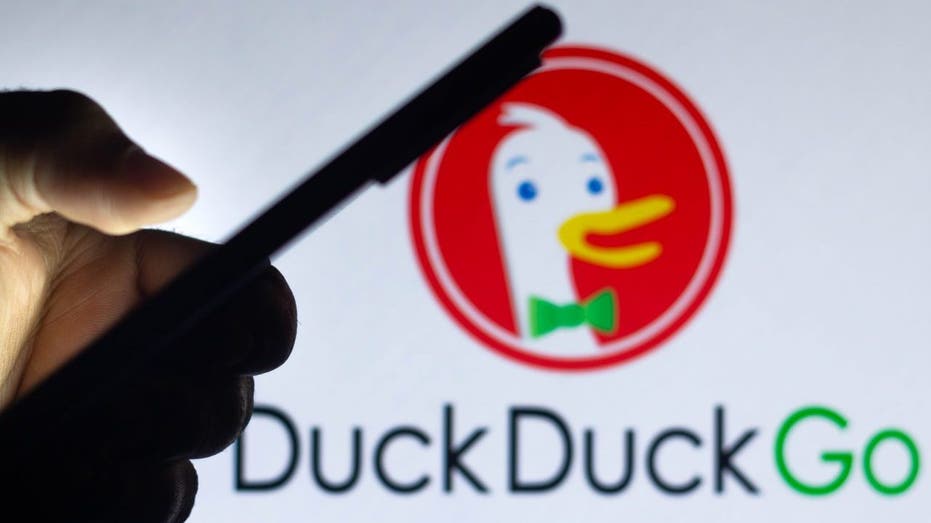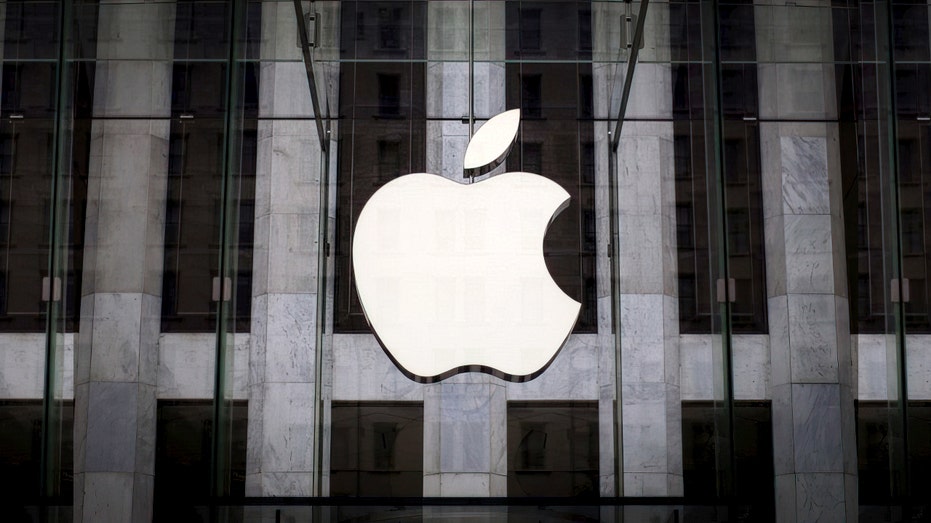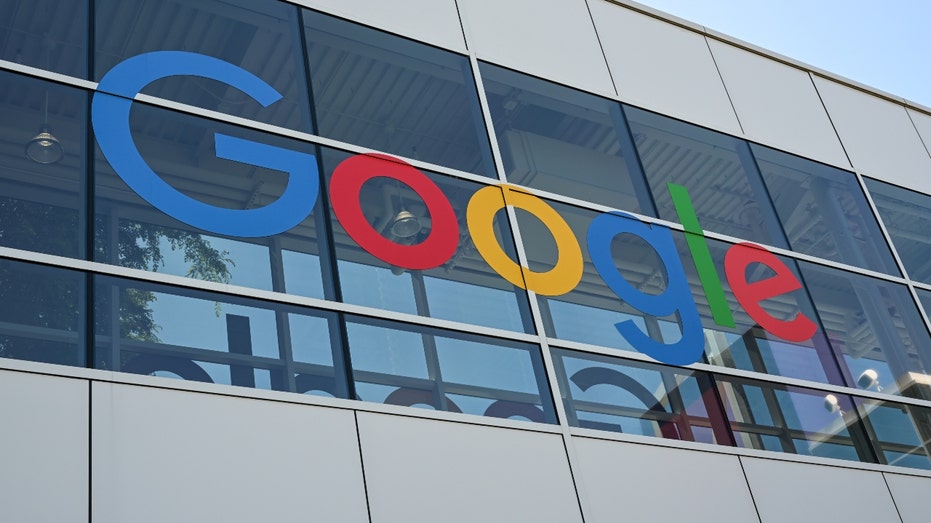Apple considered replacing Google search engine with DuckDuckGo in Safari
The failed deal came to light as Google faces the Department of Justice in an antitrust trial
Tech company Apple considered switching its search engine from Google to a much less famous competitor.
Apple had entered into negotiations to utilize the DuckDuckGo search engine for its Safari internet application, according to a report from Bloomberg.
DuckDuckGo, known for its emphasis on secure and anonymous web searching, was considered a possible replacement for Google in Safari's "private browsing" mode.
APPLE RELEASES SOFTWARE UPDATE TO FIX IPHONE 15 OVERHEATING

A hand holding a mobile phone is displayed in front of DuckDuckGo logo on a computer screen. (Photo Illustration by Rafael Henrique/SOPA Images/LightRocket via Getty Images)
Ultimately, Apple decided to stick with Google for both normal and private browsing functions.
Details about the failed deal are expected to be released in the coming days as Google is subjected to a federal antitrust lawsuit.
Judge Amit Mehta ruled Wednesday to unseal the testimonies of DuckDuckGo CEO Gabriel Weinberg and Apple executive John Giannandrea.
CEO TIM COOK SELLS SOME APPLE STOCK, BRINGING HIM $41.5 MILLION

The famous logo hangs above the entrance to the Apple store on 5th Avenue in Manhattan. (Mike Segar/File Photo / Reuters Photos)
The Justice Department and 11 attorneys general filed a civil antitrust lawsuit against the tech giant in the U.S. District Court for the District of Columbia in October 2020 to "stop Google from unlawfully maintaining monopolies through anticompetitive and exclusionary practices in the search and search advertising markets and to remedy the competitive harms."
"As one of the wealthiest companies on the planet with a market value of $1 trillion, Google is the monopoly gatekeeper to the internet for billions of users and countless advertisers worldwide," the Justice Department said at the time.
The department continued, "For years, Google has accounted for almost 90 percent of all search queries in the United States and has used anticompetitive tactics to maintain and extend its monopolies in search and search advertising."

Google headquarters in Mountain View, California. (Tayfun Coskun/Anadolu Agency via / Getty Images)
GET FOX BUSINESS ON THE GO BY CLICKING HERE
The government’s antitrust case against Google contends that the company, which controls roughly 90% of the search market, has illegally paid $10 billion annually through distribution agreements to smartphone makers such as Apple and wireless carriers like AT&T to be the default search engine on their devices.




















